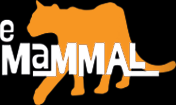Seattle Urban Mesocarnivores Project
The Seattle Urban Mesocarnivore Project of the Jordan lab at Seattle University studies the habitats and interactions of medium-sized carnivores in parks and greenspaces in Seattle.
We are studying factors that affect the presence and movements of urban mesocarnivores by sampling in natural areas of south and west Seattle. We use camera detections to evaluate the factors that affect occupancy of these locations, and we use landscape genetic methods to determine which characteristics of the urban areas surrounding these green spaces most significantly affect the movement of two species, raccoon (Procyon lotor) and Virginia opossum (Didelphis virginiana). We place sample units opportunistically throughout the largest natural areas in the study area, with 100-400m separating each station within a given natural area. Each sample unit consists of two bait stations separated by 20-50m, and each bait station is equipped with a hair snare while 1-2 bait stations per sample unit have a camera trap.
We are studying factors that affect the presence and movements of urban mesocarnivores by sampling in natural areas of south and west Seattle. We use camera detections to evaluate the factors that affect occupancy of these locations, and we use landscape genetic methods to determine which characteristics of the urban areas surrounding these green spaces most significantly affect the movement of two species, raccoon (Procyon lotor) and Virginia opossum (Didelphis virginiana). We place sample units opportunistically throughout the largest natural areas in the study area, with 100-400m separating each station within a given natural area. Each sample unit consists of two bait stations separated by 20-50m, and each bait station is equipped with a hair snare while 1-2 bait stations per sample unit have a camera trap.









